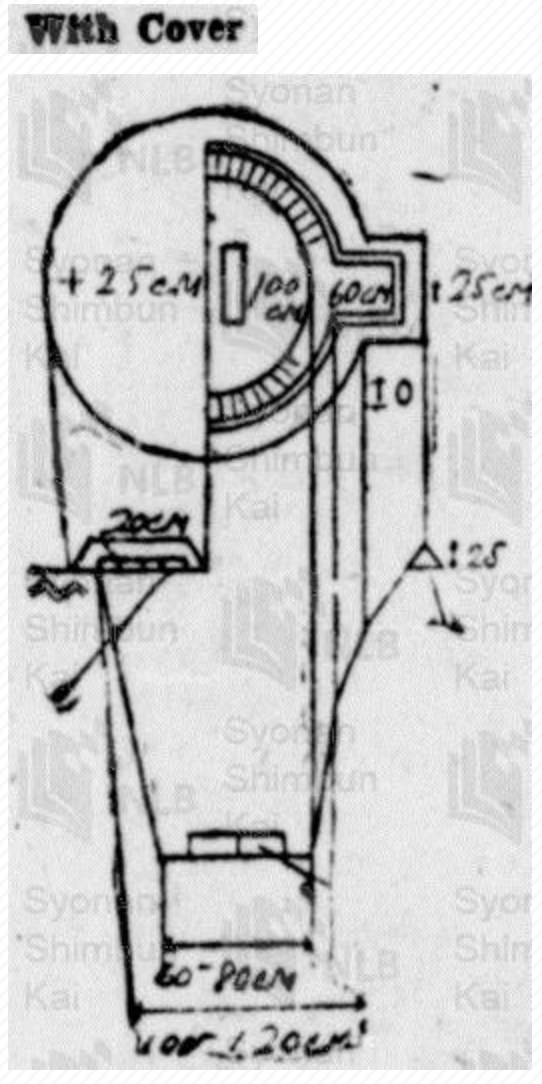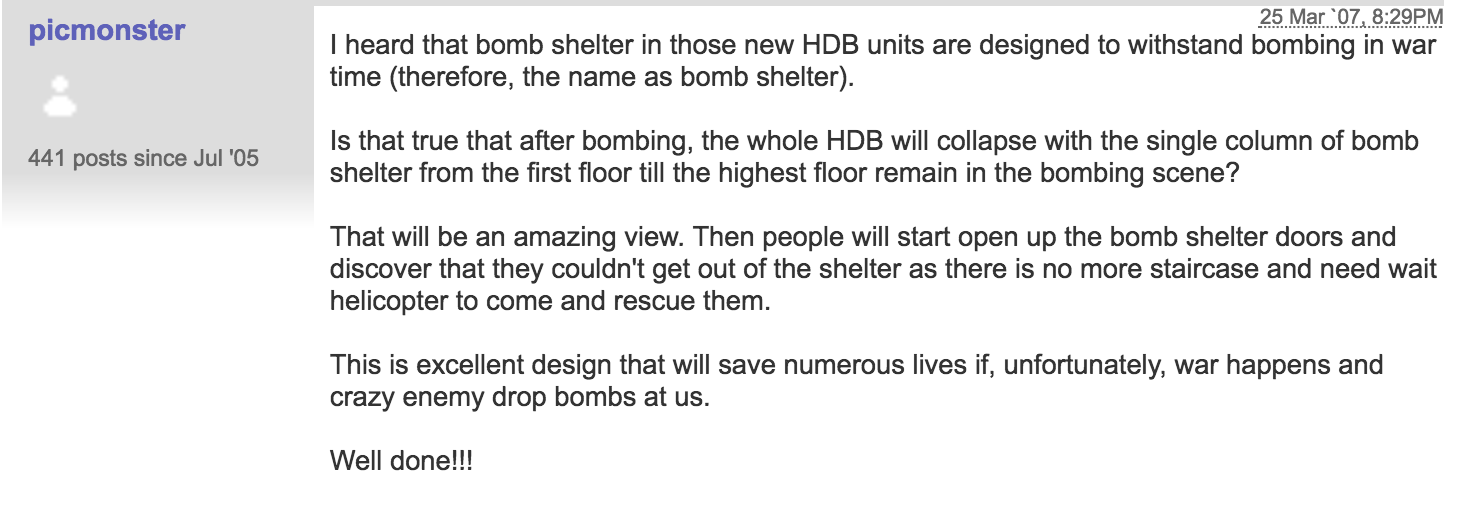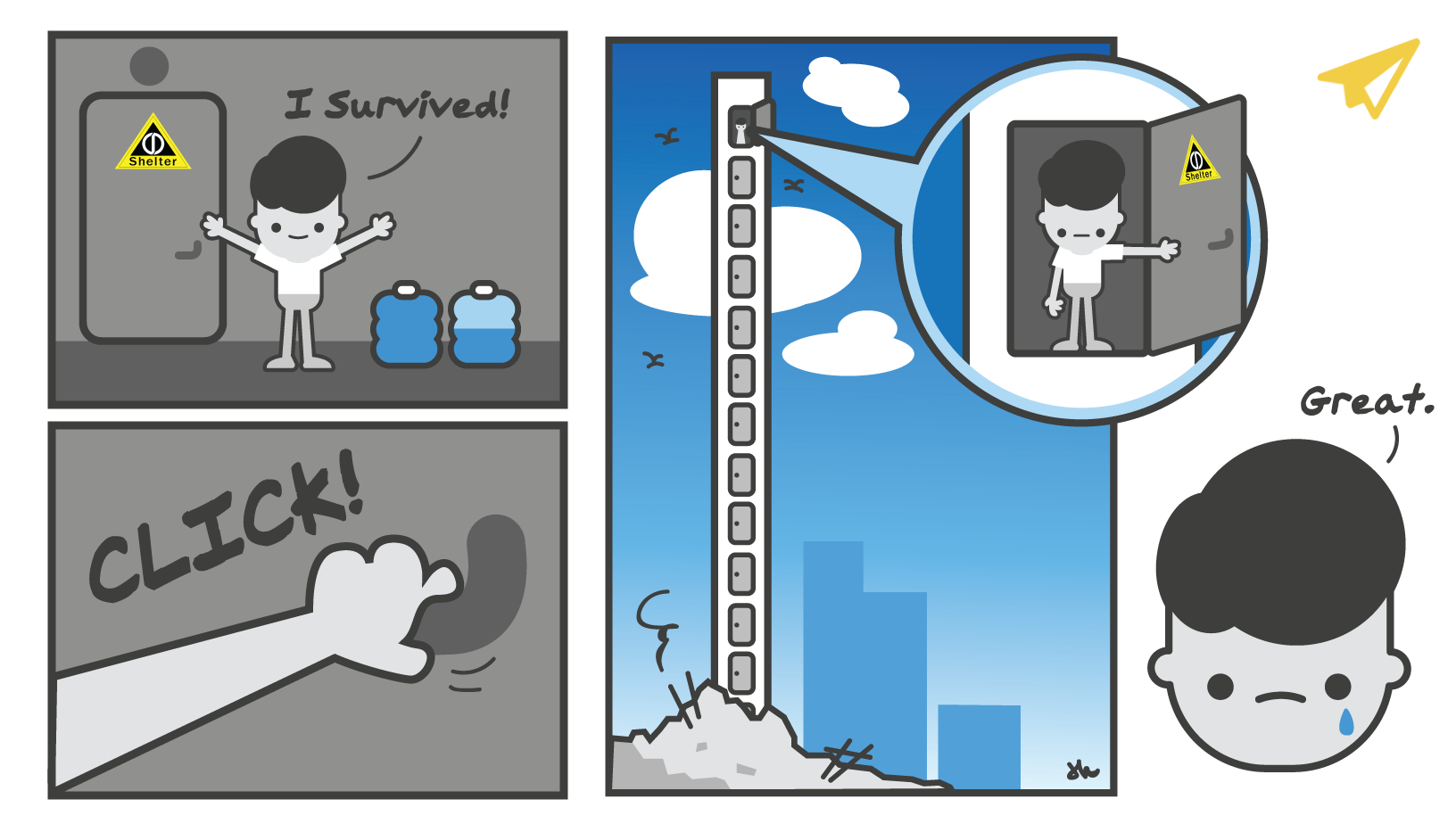The HDB flat's household shelter has been a feature in all new flats since 1996.
But it was made a compulsory feature the following year, in 1997, when the Civil Defence Shelter Act was enacted.
This bomb shelter in your HDB flat is your dumping ground a room with its walls, floor and ceiling reinforced with extra thickness to protect you from wartime emergencies.
Even though this present day shelter has only been around for around 20 years, the idea of having household shelters and areas of refuge is not new.
Household shelters during the Japanese Occupation
During the Japanese Occupation (1942 to 1945), Syonan Shimbun reported that every member of the household had to have an individual trench to seek shelter in during air raids.
Here's what the design of a trench looked like:
 Screenshot from Syonan Shimbun. Source: Newspaper SG
Screenshot from Syonan Shimbun. Source: Newspaper SG
The trench could be used either with or without a cover. The cover was to prevent splinters and flying gravel from falling in.
Thanks to the Civil Defence Act, however, we now have proper bomb shelters to seek refuge in (unlike the trenches of the Japanese Occupation).
[related_story]
How do present day shelters work?
With generations of Singaporeans now living in HDB flats with household shelters, many have wondered how these shelters really work, and how much impact they can withstand.
Common questions include how much force can the shelters withstand and does it mean there will be a column of shelters left standing if the HDB block collapses:
 Screenshot from Reddit
Screenshot from Reddit
 Screenshot from SG Forums
Screenshot from SG Forums
We imagine that this is what they had in mind:
 Illustration by Jiahui Wee.
Illustration by Jiahui Wee.
For the more cynical among us, here's a morbid view about the real purpose of the household bomb shelter:
 Screenshot from Reddit
Screenshot from Reddit
Actual purpose of the shelter
According to the Renovation and Decoration Advisory Centre (RADAC), the shelter's main purpose is actually to shield occupants from blast fragments during a bombing.
This is because flying debris and glass splinters generally make up a large proportion of casualties in bomb explosion incidents.
However, the extent to which these shelters can protect us during bombings depends on many other factors, like the area and size of impact.
But even with localised damage, it is unlikely that the entire block will be annihilated with only the row of bomb shelters left standing.
The household shelters may have been built to increase our emergency preparedness, but people have found many (non-security) purposes for the household shelter.
For instance, some use it as a storeroom, or worse, as a room for their helper (0/10 do not recommend).
Top photo illustration by Jiahui Wee
If you like what you read, follow us on Facebook, Instagram, Twitter and Telegram to get the latest updates.
